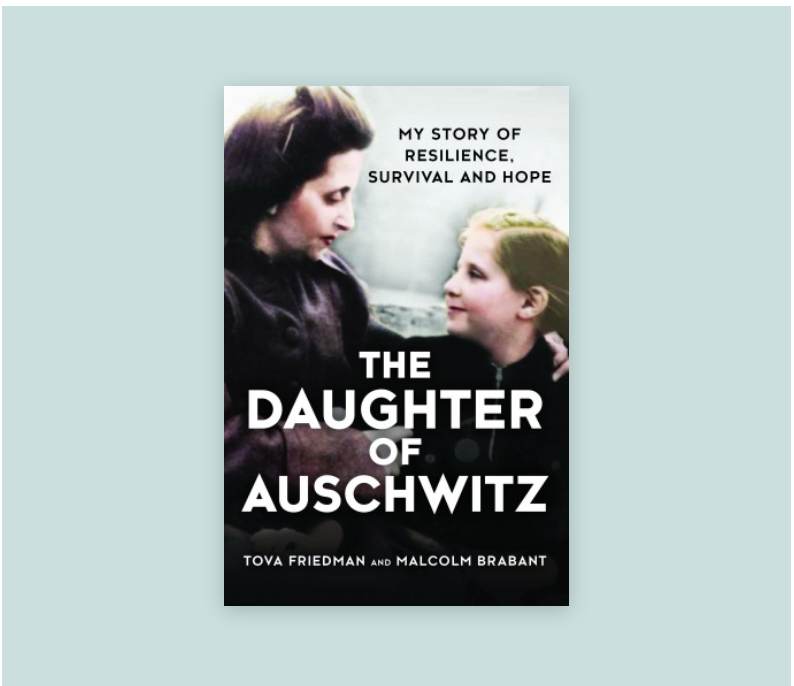Book Review by Jewish Book Council
By Jamie Wendt
– December 19, 2022
Unlike many other accounts of Holocaust survivors, Tova Friedman’s book provides readers with a child’s perspective of Auschwitz. At the age of six, Friedman was one of the concentration camp’s youngest survivors.
Her memoir begins with the chaos right before the liberation of Auschwitz, when Nazi soldiers set fire to many buildings and destroyed several crematoriums in a last-ditch effort to hide evidence of their atrocious war crimes. Friedman recalls being inside a children’s barracks while gunfire and explosions rained around her. Her mother appeared just in time to save her.
Friedman then flashes back to her memories growing up in the Jewish ghetto of Tomaszów Mazowiecki in German-occupied Poland. She was born in 1938, just two months before Kristallnacht, to young parents — Reizel and Machel — who were artists, Zionists, and intellectuals. Friedman writes about a childhood of malnutrition; extreme trauma and starvation were regular experiences. She found safety under her family’s kitchen table, where she played and listened to the conversations of adults, often picking up on catastrophic information about massacres and the struggle to find food. She witnessed family members being shot and killed and neighbors taken away, never to be seen again. In other words, she became accustomed to uncertainty and danger, which has affected the way she relates to the world ever since.
Throughout her memoir, Friedman includes excerpts from her father’s articles and eyewitness accounts recorded in a Yizkor book. She writes, “ … every European Jewish community eradicated in the Shoah has a Yizkor, a book of remembrance … a postwar attempt by survivors to reconstruct and honor the history the Germans tried to wipe out.” Such writings serve as a powerful supplement to Friedman’s childhood perception of events.
There were many times when Friedman’s life could have ended (in a cattle car transporting Jews to Auschwitz, adult Jews could not believe that there were still Jewish children alive). Yet over and over, her attentiveness, luck, and her mother’s direct instructions saved her life. At the end of the war in 1945, there were only 200 survivors from Tomaszów Mazowiecki (out of a Jewish population of 13,000 in 1939) and only five were children, including Tova Friedman.
In later chapters, Friedman recalls the years after liberation, when she returned to Tomaszów Mazowiecki, then lived in a Displaced Persons camp for Jewish refugees before immigrating to the United States and later to Israel. Her story is one of constant danger and fear, but it is also a testament to the strength and resilience of the human spirit.
Jamie Wendt is the author of the poetry collection Fruit of the Earth (Main Street Rag, 2018), which won the 2019 National Federation of Press Women Book Award in Poetry. Her manuscript, Laughing in Yiddish, was a finalist for the 2022 Philip Levine Prize in Poetry. Her poems and essays have been published in various literary journals and anthologies, including Feminine Rising, Green Mountains Review, Lilith, Jet Fuel Review, the Forward, Poetica Magazine, and others. She contributes book reviews to Jewish Book Council as well as to other publications, including Literary Mama and Mom Egg Review. She has received an Honorable Mention Pushcart Prize and was nominated for Best Spiritual Literature. She holds an MFA in Creative Writing from the University of Nebraska Omaha. She is a middle school Humanities teacher and lives in Chicago with her husband and two kids.

